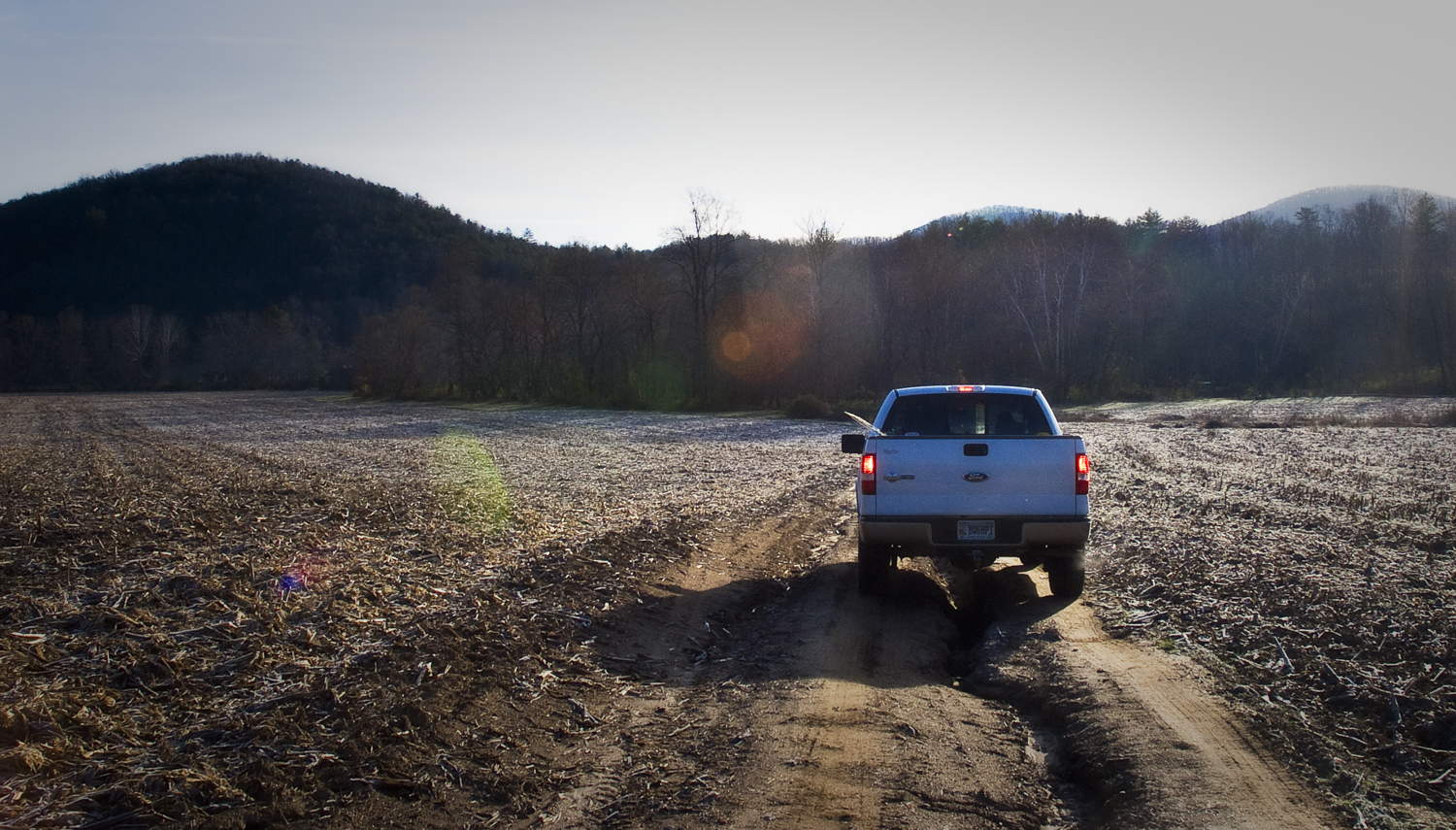By Ethan Smith
If we want clean water we need to pay farmers to clean it up.
What? Yes, let’s pay farmers a premium over the current farm subsidy program to help keep our rivers clean! That sounds crazy right? Well it isn’t, let me explain.
The farm bill and its subsidies are currently clean water’s worst enemy. The farm subsidies began with their heart in the right place. They help save American farmers by guaranteeing their crops with insurance. So if something bad happens on the farm like a flood, the farmer still gets paid. I can support that as a concept, however every piece of legislation has some unintended consequences especially when there is finance involved.
In this case the unintended consequences of the farm bill and it’s crop guarantees is rivers with excessive silt contamination and high nutrient loading, leading to toxic algae blooms, poor fish habitat and crappy fishing.
So how does the farm bill lead to these poor fishing conditions?
Let’s say a farmer has some land in a floodplain that floods one out of three years. It wouldn’t make sense for him to plant that land under normal free market conditions because the profits from the two years of successful growth would be wiped out by his losses every third year when it floods. So in theory, he would most likely leave them as wetlands. But in our warped incentive world he doesn’t care because every third year when that part of his land floods he collects insurance money from the government and gets paid anyway. So he doesn’t have to worry about flooding. Either way he makes money.
So that farmer plows under anything and everything he can plant. More land equals more money for him because there is no risk to him planting a wetland with crops even if it floods. It’s a win win situation. Drive over any bridge and there is a good chance that there is farm land adjacent planted with crops that is clearly in the flood plain, the farm subsidy at work.
So how can we change this?
It’s pretty simple, we don’t take away the subsidy. We provide positive incentive to farmers in the form a greater subsidy for the wetland and riparian habitat. We actually pay them a premium over the crop value to put back wetlands. So yes, we are paying them every year instead only every third or fourth when it floods, but who cares if the result is healthier rivers, it’s worth it. We pay them market price for what that land would produce in crops because at this point the benefits of a clean river outweigh the small contribution of those areas to the global food basket. Yields are getting very high so we don’t need as much land as we used to anyway.
So seriously, it’s that easy. We pay the farmers to put back the wetlands they’ve plowed under for the last decade or more. People will do anything if it means they make more money. Wetlands and riparian habitat just need to pay better than crops.
How do we do this?
Simple, we set up a private public cooperative agreement to provide an organization and financial vehicle to directly support wetland and riparian habitat restoration funding directly to farmers who participate in the program. We could fund it with private money and it wouldn’t need to turn into another giant public sinkhole of monetary bickering. Similar public-private cooperatives already exist in most places in the form of flood control conservancy districts. Put back the wetlands, rip out the field tile and the rivers will naturally be filtered instead of the flooding and high nutrient loading and silt contamination we are seeing now.
I understand that there are vehicles currently in place from organizations like Trout Unlimited, Ducks Unlimited, the USFW and state Divisions of Natural Wildlife, etc., that try to restore wetlands, but none of these make it so clearly financially beneficial to the bottom line of a farmer’s business or try to turn the table on the farm subsidy.
It needs to make sense for even the biggest industrial farmers, like Warren Buffett.
Wetlands and riparian habitat are the most important factor to ensure the future of clean rivers and fish habitat in cold and warm water river environments. Heck, even the ocean, if you consider this might help reduce the dead zone at the mouth of the mighty Mississippi.
We need to ensure that the financial incentives to farmers are stacked in favor of clean rivers.
Ethan Smith Gink & Gasoline www.ginkandgasoline.com hookups@ginkandgasoline.com Sign Up For Our Weekly Newsletter!



I agree completely. I’m not sure we should be subsidizing farmers at all. The overwhelming number of farms are corporate owned. The idea of the small family owned farm is heart warming nostalgia, but is really not reality.
Love this idea! I think, given the option, most farmers would go for it too.
During the spring rains, the citizens of Des Moines pay around $9000/day to remove the nitrates from the river where they draw their drinking water. Ninety-percent of the rivers and streams are rated as poor to marginal, but this is an old measurement. The guv removed water quality responsibility from the DNR and gave it to the state ag department. A few years ago the EPA told the Iowa to come up with a plan and after three years of foot dragging the ag department proposed a voluntary compliance plan for farmers. It was later revealed that entire sections of the state’s plan had merely been cut and pasted from Big Ag lobbyists like the Farm Bureau. Recently the Des Moines’ water superintendent sued the counties upstream for the cost of nitrate removal after years of getting nowhere. Big Ag has reacted with TV smear campaigns against the superintendent, making him the issue, not the water. And the water just gets worse. Fixing the problem will take $30 billion and 15-20 years. There is no way farmers are going to eat those costs, especially not in Iowa where Big Ag outright owns the government. So the idea of a public/private partnership really means the farmers will make the needed changes, but the public will pay. So pay the farmers? May as well. We’ll pay for it in the end no matter what.
What would you think about subsidizing farmers to go organic? You can’t “fix the water” unless the farms stop dumping fertilizers on their crops. Organic farming is no added fertilizers, generally speaking. Subsidize farms for the 3 years or whatever it takes to be certified organic and then they are on their own and are obligated to maintain organic status. Organic food is a growing interest for certain regions, particularly the coasts. Organic crops may or may not produce as much harvest, but organic foods sell at a premium and there is a demand.
Ethan, I applaud you for bringing an important topic up for discussion. I agree with you and I have actually been thinking about similar policies for farmers in the Great Lakes region. I think it is worth considering subsidizing farmers for ecological restoration as well. The primary reason I had been thinking about this was actually to help prevent potential Asian carp invasion. Estuaries where tributaries meet the big lakes are hospitable environments for Asian carp as they are filter feeders. A large majority of the water quality of Great Lakes water does not actually have enough plankton in the water column to support Asian carps (western basin of Lake Erie is not part of the majority), but these estuaries and bays are vulnerable areas. The public should be willing to subsidize farms to restore and maintain ecological integrity. It could actually pay for itself because the cost of an invasion of by a non native and problematic species often incurs some economic impact through decline of fisheries. Your idea is similar. Ohio has lots of farmland and if farms were subsidized as you described, the local or regional economy may see a return in economic input through recreational fishing and other activities. As I have obviously emphasized in previous posts, the Great Lakes is a billion dollar industry in Michigan alone. Tourism as a whole contributes an estimated 37 billion dollars to Michigan’s economy. I know because I have the numbers in front of me for other Great Lakes policy issues. Healthy natural resources can provide economic input to compensate for public taxation.
the Great Lakes are a billion dollar “fishing industry” in Michigan alone*
Totally agree, same theory applies to those areas as well, and those estuaries you are talking about are probably even more important and at risk.
The public-private cooperative agreement you are thinking of exists and is called the Conservation Reserve Program.
Correct me if I am wrong but doesn’t this agreement really live in the world of nearly endangered species and is implemented before their listing in which case it would become an HCP (Habitat Conservation Plan)?
CRP? No, completely different thing. Nothing to do with the ESA. CRP is a program overseen by the USDA.
Totally agree, the CRP is a great program, but it doesn’t pay as well as growing crops in most cases. So farmers have to WANT to do it out of the goodness of their hearts, and it generally effects their bottom line negatively. It is a great program, but doesn’t create a positive financial incentive. So if CRP is the vehicle we use, then we have to amp it up.
mjo,
If it exists is it working? Doesn’t sound like it is being applied everywhere.
No, Nate, it’s not. It does what Ethan prescribes — making it profitable to set aside sensitive lands via direct payments — and was once a great success but in the past 20 years or so has been increasingly ineffective in the face of changing politics, economics, attitudes and farming practices. A pretty easy place to cut in the farm bill when drought and biofuels has farmers eager to convert every insurable acre of grass into $6/bushel corn anyway. From a high of 37M acres, the CRP will be down to 24M in 2018. 5-yr funding drops from $2.1B this year to $1.8B in ’18. imo as a bird hunter, angler and drinker of water, it would be underfunded at 4x that.
Nebraska, for one state, is trying to step into the breach with programs likes Open Fields and Waters, which takes the approach of paying farmers to open lands to hunters and anglers, incentivizing the farmer to cultivate lands attractive to the program. A lot of parcels are pieced together from enrollment of some of it in CRP, some of it on OFW.
The more, the merrier, for sure. Maybe a pub/pri coop, all synergistic and whatnot, gets Facebook dude’s attention.
I didn’t see this before I wrote the reply to the next comment up. The Nebraska Open Fields and Water initiative sounds interesting, but it ads a complicated twist of access which could turn off a lot of folks in places with smaller footprint farms, like Ohio where 42% of farms are less than 50 acres. But I like the principle for sure. Access to good bird hunting is limited as hell around here, and that’s drives me crazy, and so is water access, we don’t even have high water rights! You are trespassing the minute you drop anchor… another issue all together, sorry.
This seems like voluntarily submitting to blackmail to me. I’ve worked in industries that are justifiably tightly regulated in terms of emissions, waste generation and sewerage discharge. I don’t understand why industrial agriculture gets a free pass on this issue.